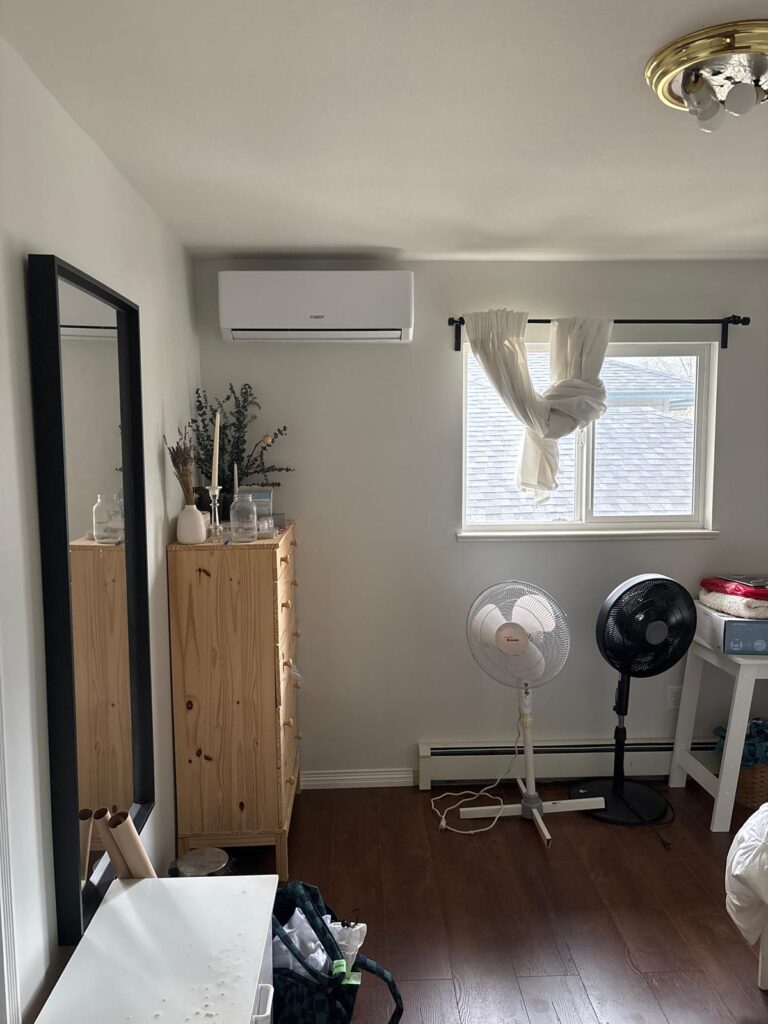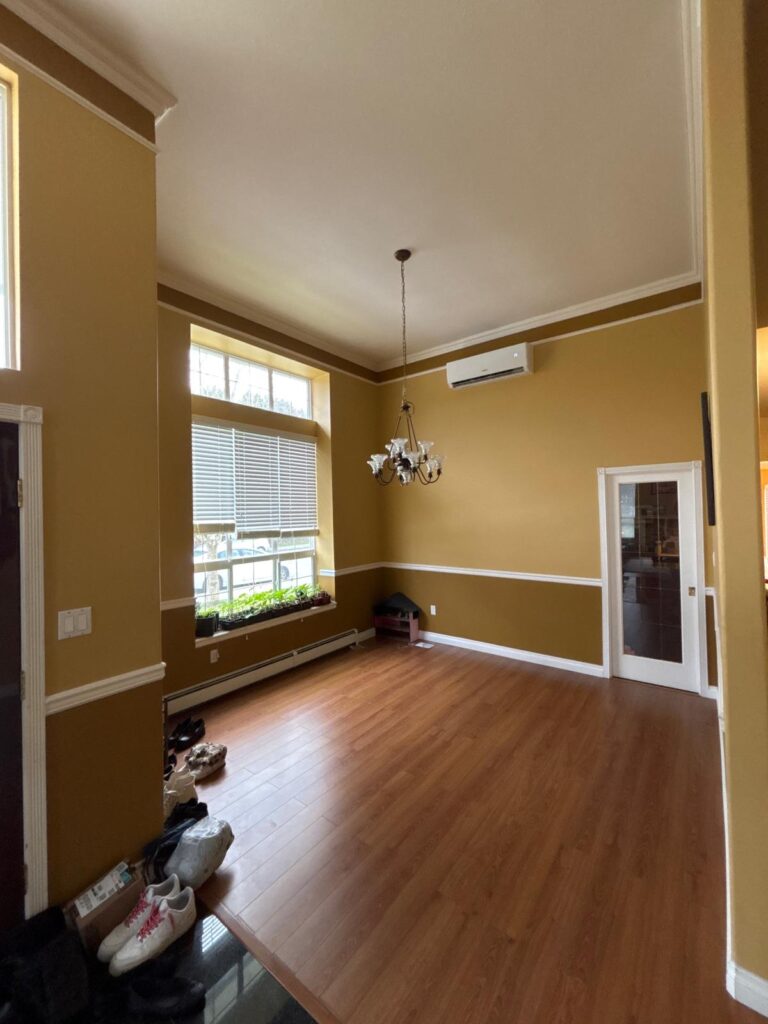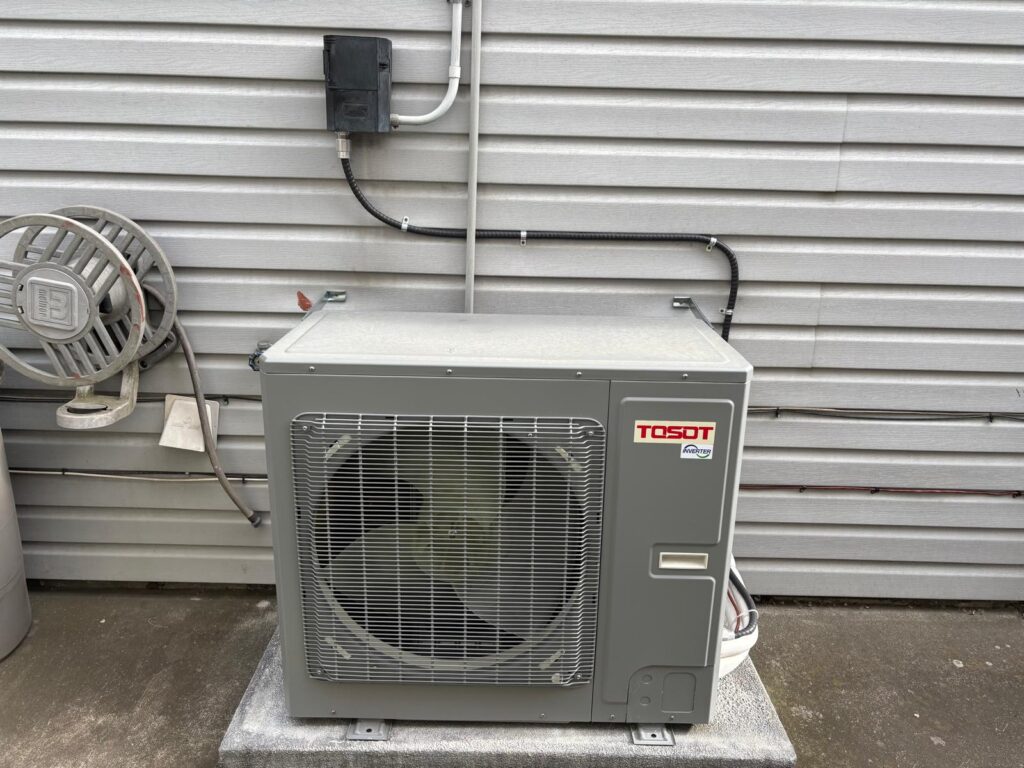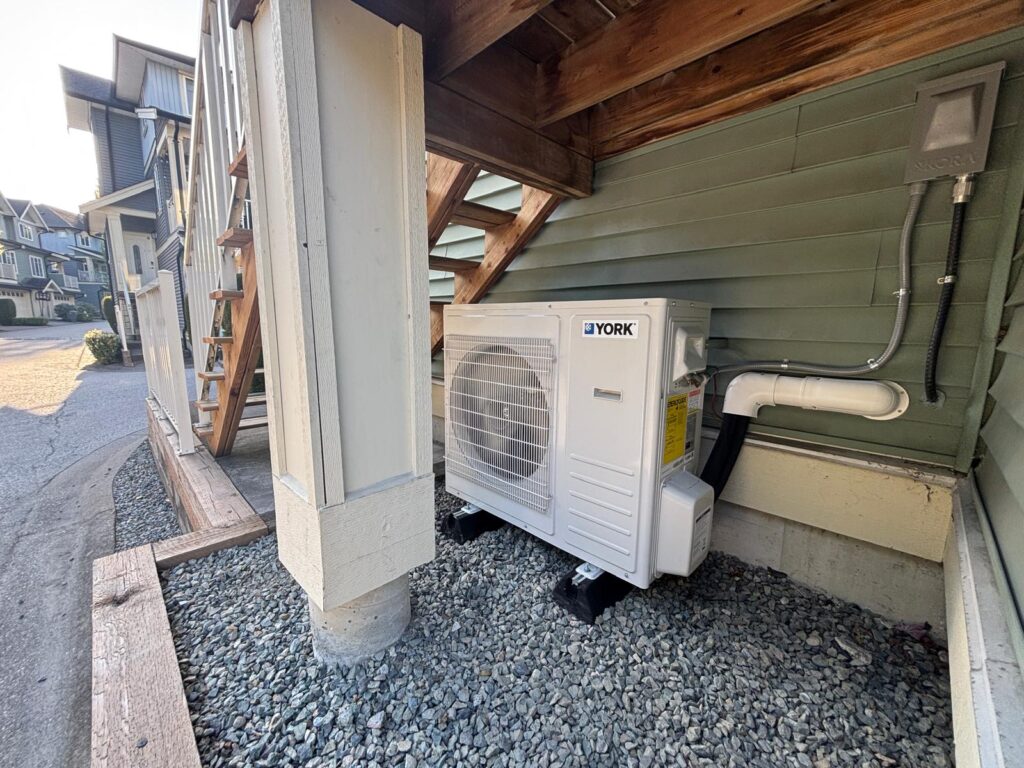Mini-Splits vs Central Ducted: Which Suits Your Vancouver Home?
Table of Contents
Mini-Splits vs Central Ducted: Which HVAC System Fits Your Vancouver Home Best?
By BCRC Heating and Cooling – Your Trusted Vancouver HVAC Experts
Choosing the right heating and cooling system for your home isn’t just about staying comfortable—it’s about energy efficiency, long-term savings, and tailoring your HVAC solution to your lifestyle. One of the most common questions we hear at BCRC Heating and Cooling is: “Which is better for my home—Mini-Splits or Central Ducted systems?”
This comprehensive guide will compare Mini-Splits vs Central Ducted systems so you can make an informed decision. Whether you’re a senior looking for low-maintenance comfort or a busy household wanting reliable climate control, understanding the differences will help you invest wisely. please check our professional heat pump installation in vancouver from here.
What Are Mini-Split Systems?
Mini-split systems, also called ductless heat pumps, consist of an outdoor unit connected to one or more indoor air handlers. They don’t require ductwork, making them perfect for homes without existing ducts or for targeted heating/cooling in specific rooms.
Key Features of Mini-Splits:
No ducts required
Zoned temperature control
Compact indoor units
High energy efficiency
Heating and cooling capability
What Are Central Ducted Systems?
Central ducted HVAC systems use a network of ducts to deliver conditioned air throughout the entire home from a single central unit. They’re a common choice for larger homes or properties that already have ductwork in place.
Key Features of Central Ducted:
Whole-home coverage
Hidden ductwork for a clean look
Single thermostat control
Works with existing vents
Can integrate with air filtration systems
Mini-Splits vs Central Ducted: A Side-by-Side Comparison
| Feature | Mini-Splits | Central Ducted |
|---|---|---|
| Installation | Easy, no ducts needed | Requires ductwork |
| Energy Efficiency | Very high (no duct losses) | High (may lose heat via ducts) |
| Aesthetics | Visible wall or ceiling units | Fully hidden |
| Temperature Control | Zoned heating/cooling | Single temperature for entire home |
| Cost | Lower for small homes, higher if multiple zones | More economical for large homes with ducts |
| Maintenance | Clean indoor filters regularly | Duct cleaning & system maintenance |
| Ideal For | Homes without ducts, room additions | Homes with existing ducts, whole-home comfort |


Mini-Splits vs Central Ducted: Which Wins in Vancouver’s Climate?
When deciding between Mini-Splits vs Central Ducted heating and cooling systems, homeowners in Vancouver face a unique set of considerations. The city’s mild summers, damp winters, and diverse housing styles—from heritage character homes to modern high-rise condos—mean that energy efficiency, comfort, and installation practicality all play critical roles in the decision. Both systems have their strengths, but understanding how they perform in our coastal Pacific Northwest climate can help you choose the most cost-effective and comfortable solution for your home.
Energy Efficiency in Vancouver’s Mild Climate
One of the most important factors for Vancouver homeowners is energy efficiency. In a city where temperatures are moderate most of the year, the right HVAC system can save you hundreds of dollars annually while keeping your home comfortable.
Mini-Splits are well-known for their exceptional efficiency, largely because they eliminate one of the biggest sources of energy loss in conventional systems: ductwork. In traditional forced-air systems, heat loss through ducts can account for up to 30% of total energy waste, especially if the ducts run through unconditioned spaces such as attics or crawlspaces. By delivering conditioned air directly into each room through an indoor unit, Mini-Splits bypass this inefficiency entirely. This makes them particularly effective in older Vancouver homes where retrofitting insulated ductwork may be challenging.
Central Ducted systems, especially modern models with variable-speed heat pumps, can still be very efficient—particularly in homes that already have well-insulated ducts in good condition. These systems benefit from advancements like ECM (electronically commutated motor) blower fans and smart thermostats, which can modulate airflow and temperature more precisely. However, in houses with aging or poorly sealed duct systems, efficiency drops, and homeowners may need to invest in duct repairs or insulation upgrades to maximize performance.
In Vancouver’s climate, where heating is more important than cooling, both systems benefit from heat pump technology, which transfers heat rather than generating it. For many households, this means operating costs are significantly lower compared to electric baseboard heaters or older gas furnaces.
Comfort and Indoor Air Quality
Comfort isn’t just about temperature—it’s about control, consistency, and the quality of the air you breathe.
Mini-Splits shine in the area of personalized comfort. Each indoor unit operates independently, allowing different rooms or “zones” to be set at different temperatures. This is perfect for families where one person likes it cooler while another prefers it warmer. It’s also ideal for homes with rooms that are used infrequently—why heat or cool them when you don’t need to? Additionally, because Mini-Splits don’t rely on ducts, there’s no risk of dust, pollen, or other allergens accumulating in and being distributed through the duct system. For seniors, allergy sufferers, and those with respiratory issues, this can be a significant advantage.
Central Ducted systems offer a different kind of comfort: whole-home temperature consistency. You set one thermostat, and the entire house is brought to the desired temperature. This even distribution can feel more natural for households where all rooms are occupied regularly. However, ductwork can circulate dust, pet dander, and other particles unless it’s cleaned regularly. In Vancouver’s damp climate, neglected ducts can also develop mold issues, so regular maintenance is key.
Installation Considerations in Vancouver Homes
Vancouver’s housing stock ranges from pre-war character homes and post-war bungalows to newly built condos and townhouses, and each poses different challenges and opportunities when it comes to HVAC installation.
Mini-Splits are a favorite for quick, non-invasive installation. They require only a small wall penetration to connect indoor and outdoor units via refrigerant lines, meaning there’s no need for extensive renovation or ductwork construction. This makes them ideal for:
Heritage homes, where preserving original features is a priority
Condos or apartments, where space for ductwork is limited
Home additions or garden suites, where extending existing ducts is impractical
Installation is typically completed within a day or two, minimizing disruption to your home life.
Central Ducted systems are best suited for homes that already have ductwork in place—often the case with detached houses built in the last few decades. In these cases, upgrading to a modern high-efficiency heat pump can be straightforward and cost-effective. However, installing entirely new ductwork can be both expensive and disruptive, often requiring significant construction work that may not be feasible for all homeowners.


Emergency Expert Heat Pump Service Vancouver
Cost: Upfront Investment vs Long-Term Savings
When comparing Mini-Splits vs Central Ducted systems, it’s important to look beyond the sticker price and consider the full lifecycle cost, including energy bills, maintenance, and potential rebates.
Mini-Splits generally have a lower upfront cost for single-zone installations—perfect for cooling and heating a single room, such as a home office or bedroom. However, if you want full-home coverage with multiple zones, costs can add up quickly since each zone requires its own indoor unit. On the plus side, Mini-Splits often reduce monthly utility bills thanks to their high efficiency, and the ability to heat or cool only the spaces you’re using can lead to further savings.
Central Ducted systems typically involve a higher initial investment, particularly if ductwork needs to be added or upgraded. But for larger homes with existing ducts, replacing an old furnace or air conditioner with a high-efficiency heat pump can be more economical than installing multiple Mini-Split units. Central systems may also have lower maintenance costs over time, as there’s only one main air handler to service.
Maintenance and Lifespan
Mini-Splits: Require regular cleaning of indoor unit filters and occasional servicing of the outdoor unit.
Central Ducted: Require duct cleaning, filter changes, and system tune-ups to maintain efficiency.
Both systems can last 15–20 years with proper care.
Which System is Better for Seniors?
At BCRC Heating and Cooling, we work closely with seniors who value comfort, simplicity, and quiet operation.
Mini-Splits: Offer easy remote control, quiet operation, and individual room adjustments—perfect for seniors who spend time in specific areas of the home.
Central Ducted: One thermostat for the whole home makes it simple to operate, and systems can be integrated with air purification for better indoor air quality.
Environmental Impact
Vancouver homeowners are increasingly eco-conscious.
Mini-Splits: Reduce greenhouse gas emissions by maximizing efficiency and eliminating duct losses.
Central Ducted: New high-efficiency models also offer excellent performance but may require additional insulation upgrades to match ductless efficiency.
Making the Right Choice for Your Vancouver Home
The choice between Mini-Splits vs Central Ducted depends on:
Your home’s existing infrastructure
Budget
Desired comfort control
Energy efficiency goals
Our team at BCRC Heating and Cooling offers free in-home consultations to help you compare options side-by-side.
Frequently Asked Questions
Q: Can Mini-Splits heat in winter?
Yes—modern ductless systems can efficiently heat even in Vancouver’s coldest months.
Q: Are Central Ducted systems noisy?
Modern units are quiet, but Mini-Splits are generally quieter since they lack large blowers.
Q: Can I combine both systems?
Absolutely—you can use a central ducted system for main areas and Mini-Splits for additions or problem rooms.
Comfort Meets Efficiency
When it comes to Mini-Splits vs Central Ducted, there’s no one-size-fits-all answer. Both systems have unique advantages, and the right choice depends on your home, comfort needs, and budget.
Your Comfort, Our Expertise
Don’t leave your home comfort to chance—let the experts help you choose the perfect system.
Contact BCRC Heating and Cooling today for your free consultation on Mini-Splits vs Central Ducted. Call 6047817272 to get started.














